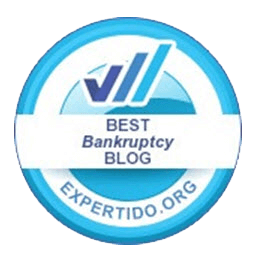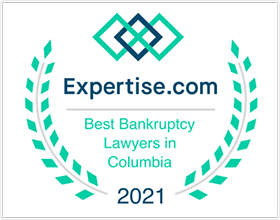Bankruptcy can give you a new financial lease on life, but it is also a complex legal process that can be daunting. In South Carolina - and elsewhere in the nation - the vast majority of individuals and couples who choose bankruptcy to help them overcome crushing debt and get their finances back on track turn to Chapter 7 or Chapter 13 bankruptcy – depending on their unique circumstances. A better understanding of how each works can afford you a better understanding of what bankruptcy could mean for you, and the most important first step you can take is reaching out to the trusted legal counsel of an experienced South Carolina bankruptcy attorney.
Chapter 7 Bankruptcy
Bankruptcy is designed to help those facing overwhelming debt get out from under the weight of it and wipe the slate clean with either a repayment plan or a liquidation process. Chapter 7 bankruptcy refers to the latter and is often called liquidation bankruptcy. If you successfully file for Chapter 7 bankruptcy, it will clear the majority of your unsecured debts, such as:
- Credit card debt
- Medical bills
- Payday loans
- Unsecured personal loans
To be eligible for Chapter 7 bankruptcy, you must earn less than the earning cap set by the State of South Carolina. If you qualify in terms of your earnings, Chapter 7 bankruptcy will trigger an automatic stay that blocks most collection efforts.
Assets Retained
It’s important to note that if you own properties or assets, they can be sold to cover what you owe creditors, but no repayment is required if you have no assets – beyond the minimum needed to continue supporting yourself. This can include up to a certain amount of equity in your home and in your vehicle.
Your Mortgage
Finally, Chapter 7 bankruptcy will not help you keep your home if the lender has already foreclosed on it. And if you are attempting to save your home in a Chapter 7 bankruptcy, you’ll need to get caught up with your mortgage payments and stay current to avoid foreclosure.
All told Chapter 7 bankruptcy is generally reserved for those who have fewer assets and relatively low income.
Chapter 13 Bankruptcy
Chapter 13 bankruptcy, on the other hand, is a form of financial reorganization for those who have a regular source of income but who have also racked up considerable debt. This form of bankruptcy allows you to create an official repayment plan – for at least a portion of your outstanding debt – that can range from three to five years. During this repayment period, your creditors are prohibited from employing collection efforts against you.
Turn to an Experienced South Carolina Bankruptcy Attorney for the Guidance You Need
Bankruptcy can help you achieve renewed financial balance in your life, and while the legal process is exacting, the knowledgeable South Carolina bankruptcy attorneys at Reed Law Firm have the experience and legal skills to help you achieve your financial goals. For more information about what we can do for you, please don’t hesitate to reach out and contact us online or call 803-784-1517 in Columbia or 843-920-2094 in Florence today.


